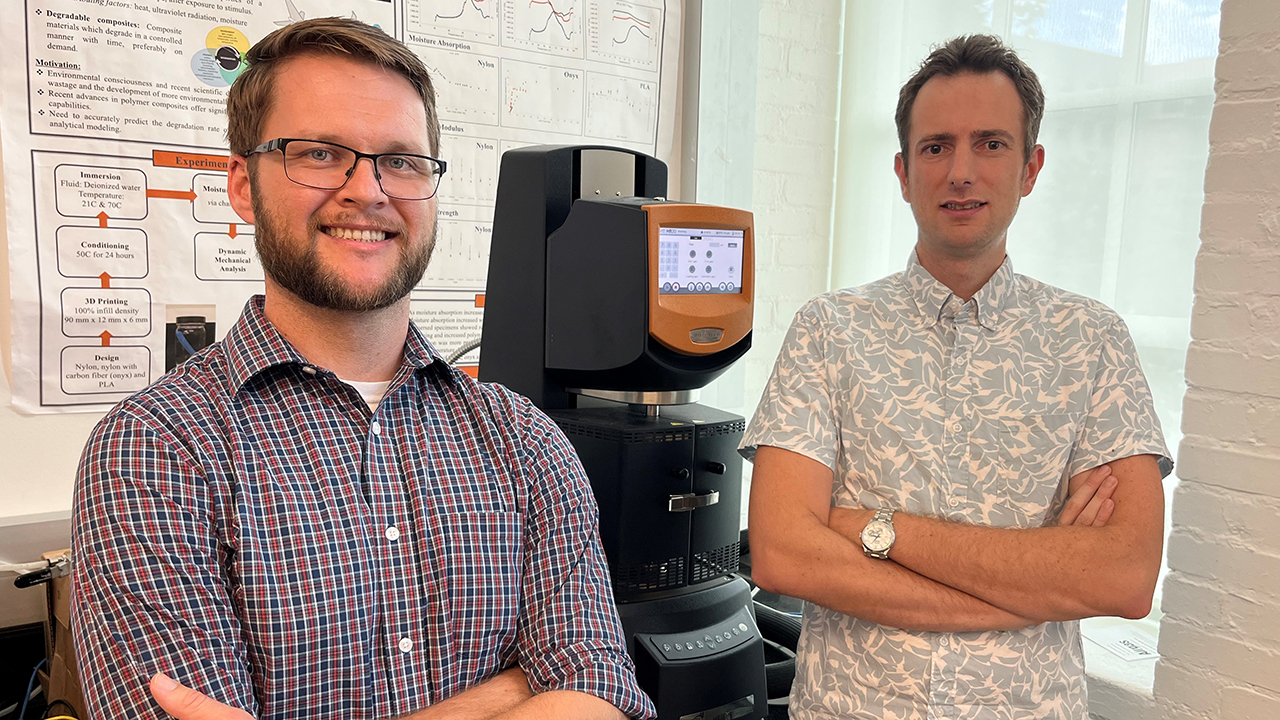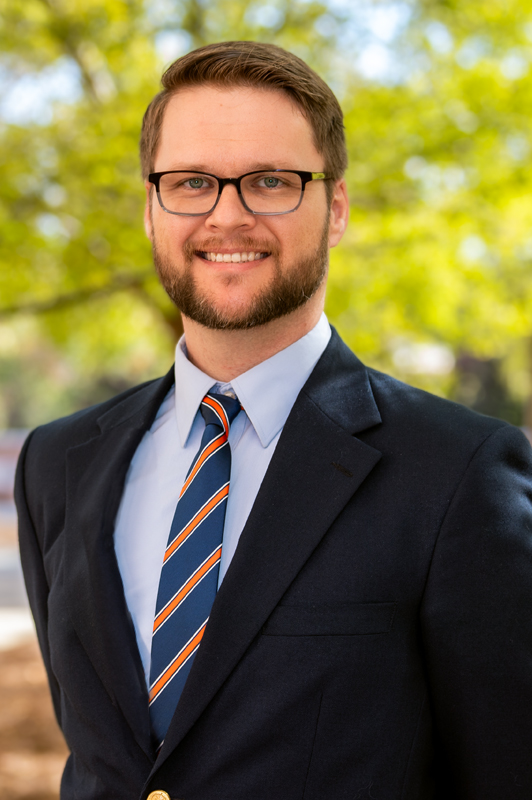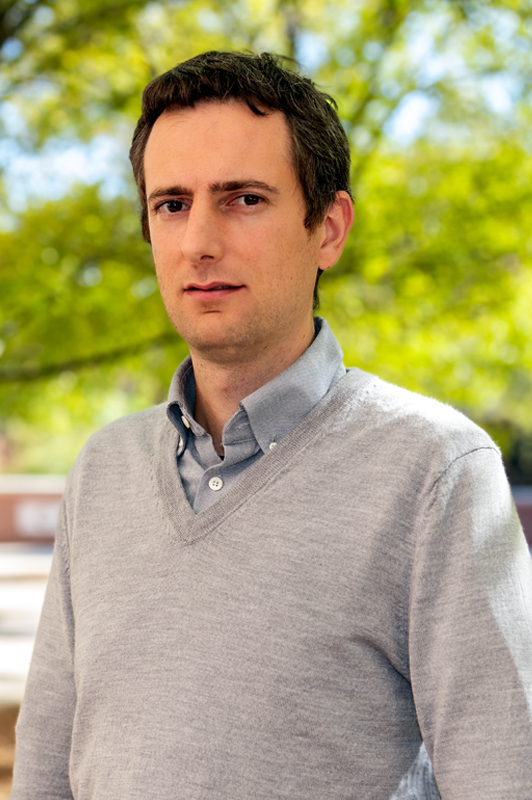Professors earn NASA EPSCoR grant to research impact of microgravity on self-folding polymer sheets
Published: Jan 25, 2023 7:00 AM
By Joe McAdory
Self-folding polymer sheets may enable lightweight mechanical actuators used to open and close antennas, deploy solar arrays or unfurl solar sails in space. However, this poses many questions on the behavior of these smart materials in space environments. For example, how does microgravity impact the self-folding dynamics of shape memory polymer sheets?
This is the question Russell Mailen and Davide Guzzetti, assistant professors in aerospace engineering, are determined to answer in their recently awarded NASA Established Program to Stimulate Competitive Research (EPSCoR) Suborbital study, “Activation of Self-Folding Origami in Microgravity Environment.”
EPSCoR grants enable recipients to conduct research aimed at developing long-term, competitive capabilities in aerospace, according to NASA.
“Receiving this NASA EPSCoR grant reflects years of hard work and a continuous and growing collaboration between myself and Dr. Guzzetti,” Mailen said. “The EPSCoR grant represents an investment in the research capabilities of Auburn University and our laboratories. In addition, the grant provides us an opportunity to advance the field of shape memory polymer actuators for deployment of space structures.”
Mailen is the study’s principal investigator who approaches this project from a materials and self-folding origami point of view. Guzzetti, the project’s co-investigator, is approaching the project from a space mission design and concept analysis angle.
Actuators engineered from self-folding shape memory polymers can be advantageous because they may offer significant weight savings and, in the lunar environment, may be more tolerant to lunar dust than conventional mechanisms, Guzzetti said.
“When a sheet of plastic changes shape from a flat state to a folded state, it’s able to perform a small amount of mechanical work,” said Guzzetti. “Moving parts are often a risk in space systems because they are complex and can fail due to jamming. Replacing moving parts with shape memory polymer sheets may reduce the complexity of the system while still achieving the desired motion.”
Guzzetti and Mailen earned a NASA Innovative Advanced Concepts award in 2020 to explore technology to enable kilometer-sized antenna arrays for radio astronomy that self-assemble in space. The study, “Flat Fabrication of Progressively Self-Assembling Space Systems,” found the functionality of self-folding polymer origamis, but the unanswered question remained: What are the effects of space environments on the self-folding polymers? That question inspired this continued research.
“Space environments come with potential problems, extreme temperatures, vacuum, radiation … everything that are a harsh environment for a polymer,” Mailen said. “Another component to that environment is microgravity, which is where this project is going.”
The NASA EPSCoR-awarded project offers three objectives: 1) Adapt a ground-based apparatus for testing in microgravity flight, 2) Determine major drivers for microgravity behavior through experimentation – including pattern geometry, light intensity, and initial temperature, and 3) Analyze self-folding dynamics in microgravity.
How can these dynamics be analyzed in microgravity? In the air, of course. Experiments will be made aboard an aircraft following a parabolic flight path.
“A suborbital, parabolic flight profile produces microgravity conditions for self-folding that cannot be obtained in a ground-based setting, and characterization of self-folding in microgravity is necessary to advance the technology readiness level for future applications in deployable structures,” Mailen said. “You will get microgravity as you’re going over the top of that parabola and come back down, and the experiment is reset before the top of the next parabola.”
Media Contact: , jem0040@auburn.edu, 334.844.3447
Aerospace engineering professors Russell Mailen and Davide Guzzetti



